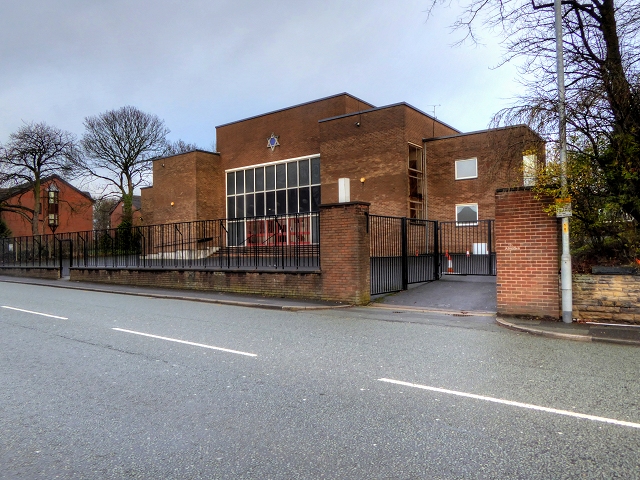
With the Jewish festival of Sukkot beginning Monday night, Rabbi Ben Kurzer wishes his congregation could focus on prayer and celebration — not on security checks and locked gates.
But after last week’s deadly attack at a Manchester synagogue, which left two Jewish worshippers dead, that wish feels increasingly distant.
“Sadly, we’ve had to keep increasing our security year after year,” said Kurzer, standing in the soft light filtering through the stained glass of his London synagogue. “We would love to live in a country where that wasn’t necessary.”
The attack took place on Yom Kippur, Judaism’s holiest day, when a British man of Syrian descent drove into pedestrians outside a north Manchester synagogue and began stabbing bystanders. Police later said one of the two victims had been killed by an accidental gunshot during their response.
Fear and frustration
For many British Jews, the tragedy deepened a sense of isolation that has been growing for years. Community leaders say Jews are increasingly targeted because of perceived links to Israel — a tension that has worsened since the 2023 Hamas-led attack and Israel’s subsequent war in Gaza.
As antisemitic incidents rise, synagogues, schools, and community centers across Britain are investing heavily in private security and surveillance — while waiting for greater government support.
“Enhanced security is necessary,” said Rabbi Jonathan Roodyn of another London congregation, “but it shouldn’t have to be. What we really need is education — a long-term effort to make sure violence, fear, and intimidation aren’t part of daily life in this country.”
A sharp rise in antisemitism
The Community Security Trust (CST), which monitors and protects British Jews from antisemitic threats, recorded 1,521 incidents in the first half of 2025 — the second-highest total ever for that period.
Recent reports include assaults on Jewish schoolchildren and vandalism of synagogues in London, including cases where excrement was smeared on religious sites.
“We just want to live normal lives,” Roodyn said. “To walk to synagogue, to send our kids to school — without fear.”
The cost of protection
Britain’s Jewish population — around 300,000 people, or 0.5% of the total population — is mainly concentrated in London and Manchester. Yet its communities often resemble secure compounds rather than open places of worship.
Richard Verber of the United Synagogue, which represents around 60 communities, said the organization now spends £1 million a year on security — money he wishes could go toward youth programs or cultural events instead.
“No other faith group has to protect itself to this extent,” Verber said. “We’re talking about fences, spikes, barbed wire, CCTV — all connected to local police networks. It’s exhausting and heartbreaking.”
He added: “It’s a basic duty of government to protect its citizens. And that failed in Manchester in the most terrible way.”
Promises and doubts
Prime Minister Keir Starmer has vowed to do more. “I will do everything in my power to guarantee you the security you deserve,” he told Britain’s Jewish community last week.
London’s Metropolitan Police Commissioner, Mark Rowley, said additional patrols had been deployed near synagogues, schools, and community centers. “We are with you,” he wrote in the Jewish Chronicle. “You are not alone.” But many remain unconvinced.
“Our synagogues, schools, even nurseries are like fortresses,” said journalist Nicole Lampert, who often writes about British Jewish life. “I don’t trust that the government can truly keep us safe. The danger still feels frighteningly real.”
For Rabbi Kurzer and others preparing for Sukkot, that fear now shadows even their most joyful moments — a painful reminder that faith, community, and safety are no longer things that can be taken for granted. Photo by David Dixon, Wikimedia commons.



































